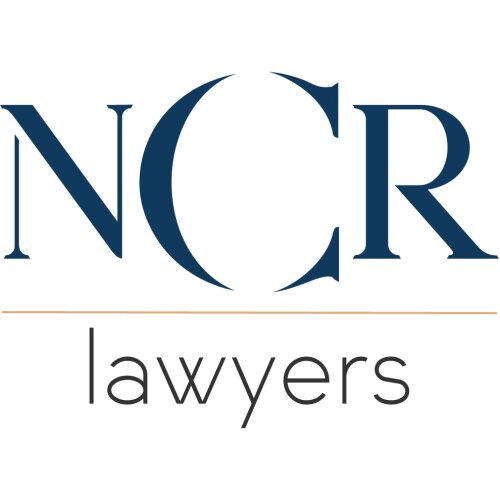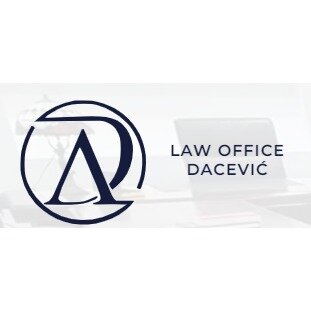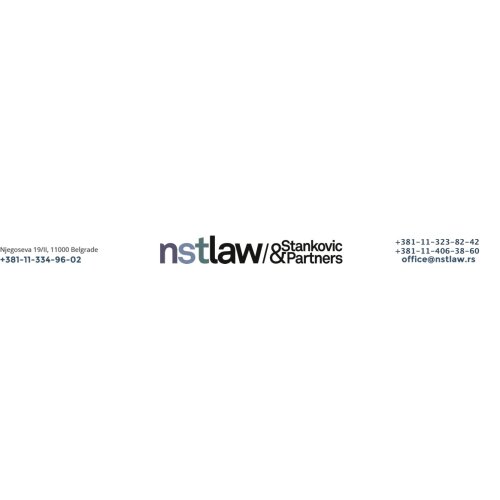Best Conveyancing Lawyers in Serbia
Share your needs with us, get contacted by law firms.
Free. Takes 2 min.
Free Guide to Hiring a Real Estate Lawyer
Or refine your search by selecting a city:
List of the best lawyers in Serbia
About Conveyancing Law in Serbia
Conveyancing in Serbia refers to the legal process of transferring property ownership from one person to another. This involves a series of steps, including verifying ownership, preparing legal documentation, registering the transfer with relevant authorities, and ensuring compliance with property and tax regulations. The process is regulated by local laws to protect both buyers and sellers, with lawyers often playing a vital role in making sure all procedures are followed correctly.
Why You May Need a Lawyer
Engaging a lawyer familiar with Serbian conveyancing law is highly recommended due to the complexity and importance of property transactions. Some common situations where legal assistance is crucial include:
- Buying or selling residential or commercial property
- Dealing with properties that have title disputes or unclear ownership
- Inheritance of real estate and transfer to heirs
- Preparing and reviewing contracts or agreements for property transfer
- Conducting due diligence to uncover potential legal or tax issues
- Handling legal obligations regarding property taxes or fees
- Registering property at the Cadastre (land registry)
- Mortgaging or financing property
A lawyer can help you avoid legal pitfalls, ensure your rights are protected, and oversee that all documents are properly executed according to the law.
Local Laws Overview
In Serbia, conveyancing is governed by several laws and regulations, most notably the Law on Property and the Law on State Survey and Cadastre. Some key aspects include:
- All property transfers must be executed in written form and certified by a notary public.
- The transfer of ownership is not effective until registration at the Cadastre of Real Estate.
- The buyer usually assumes responsibility for paying property transfer tax unless otherwise stipulated in the contract.
- Foreign citizens and legal entities may purchase property in Serbia, although some restrictions apply depending on bilateral agreements and the property type.
- Due diligence is recommended to verify that the property is free of mortgages, encumbrances, or legal disputes.
- Banks often require additional documentation and legal opinions before approving mortgages or loans against property.
The conveyancing process can take several weeks, depending on the complexity of the transaction and the responsiveness of authorities.
Frequently Asked Questions
What is the first step in the property transfer process in Serbia?
The first step is to conduct due diligence to confirm the seller’s ownership rights and ensure there are no encumbrances, followed by drafting a preliminary purchase agreement.
Do I need a notary public for property transactions?
Yes, all property sale agreements must be certified before a notary public in order to be legally valid for registration with the Cadastre.
Is it mandatory to involve a lawyer in conveyancing?
While not legally mandatory, involving a lawyer is highly recommended to protect your interests and manage legal requirements efficiently.
What taxes are involved when buying property in Serbia?
Buyers usually pay a property transfer tax of 2.5 percent unless the property is new, in which case value-added tax (VAT) may apply instead.
Can foreigners buy real estate in Serbia?
Foreign citizens and companies can buy real estate in Serbia, with certain restrictions based on reciprocity agreements for citizens of specific countries.
How long does the conveyancing process take?
The process typically takes several weeks, from contract preparation to registration at the Cadastre, depending on the specifics of the transaction.
What documents are required for conveyancing?
Key documents include the seller’s proof of ownership, a valid sale contract, identification documents, proof of payment, and a notary-certified transfer agreement.
What is the Cadastre and why is it important?
The Cadastre is the official land registry where all property ownership and rights are recorded. Registration is essential for new ownership to be legally recognized.
Who pays the notary and registration fees?
The contract usually specifies, but it is common for the buyer to assume notary, registration, and transfer tax fees unless agreed otherwise.
What risks exist if the property is not registered correctly?
If the property is not properly registered, the buyer may not gain full legal ownership and can face disputes or difficulties in future transactions.
Additional Resources
For further information and guidance on conveyancing in Serbia, you may find the following resources useful:
- Republički geodetski zavod (Republic Geodetic Authority) - the official government body responsible for land registration and the Cadastre
- Ministry of Justice of the Republic of Serbia - offers information on laws and notary services
- Serbian Chamber of Notaries - provides a directory of public notaries and guidelines on certification
- Local municipal offices - for zoning, building permits, and local fees information
- Law firms specializing in real estate and property law
Always verify official sources or consult a licensed legal professional for the most current advice.
Next Steps
If you are considering buying, selling, or inheriting property in Serbia, here are recommended next steps:
- Consult a local lawyer who specializes in real estate and property conveyancing law
- Gather all relevant property documents and identify potential legal issues in advance
- Arrange for a property inspection and due diligence regarding ownership and encumbrances
- Contact a registered public notary when ready to formalize the transaction
- Stay informed about procedural updates or legal changes by following guidance from official authorities
Taking prompt and informed legal steps will help ensure your property transaction is secure, compliant with local law, and free of unpleasant surprises.
Lawzana helps you find the best lawyers and law firms in Serbia through a curated and pre-screened list of qualified legal professionals. Our platform offers rankings and detailed profiles of attorneys and law firms, allowing you to compare based on practice areas, including Conveyancing, experience, and client feedback.
Each profile includes a description of the firm's areas of practice, client reviews, team members and partners, year of establishment, spoken languages, office locations, contact information, social media presence, and any published articles or resources. Most firms on our platform speak English and are experienced in both local and international legal matters.
Get a quote from top-rated law firms in Serbia — quickly, securely, and without unnecessary hassle.
Disclaimer:
The information provided on this page is for general informational purposes only and does not constitute legal advice. While we strive to ensure the accuracy and relevance of the content, legal information may change over time, and interpretations of the law can vary. You should always consult with a qualified legal professional for advice specific to your situation.
We disclaim all liability for actions taken or not taken based on the content of this page. If you believe any information is incorrect or outdated, please contact us, and we will review and update it where appropriate.
Browse conveyancing law firms by city in Serbia
Refine your search by selecting a city.

















